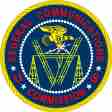In the United States federal government, Congress and the President have the ability to delegate authority to independent executive agencies, sometimes called federal agencies or administrative agencies. These agencies are distinct from executive departments because they have some degree of independence from the President. In executive departments, department heads are nominated by the President and confirmed by Congress, and can be removed from their posts for political reasons. Department heads, who comprise the Cabinet, therefore often turn over when a new president is elected. For example, the Secretary of State is a high status position that a high ranking diplomat in the leading political party usually fills. Unlike in executive departments, the leaders of agencies can only be removed from office for corruption charges under statutory provisions. Even though the president appoints them, agency leadership is non-partisan, or independent from Presidential politics and election turn over.
The leaders of agencies often participate as members of commissions, boards, or councils with internal structures resembling tripartite government. That is, a single agency may "legislate" by producing regulations; "adjudicate" by resolving disputes between parties; and "enforce" by penalizing regulation violations. To illustrate this point, consider one independent agency — the Federal Communication Commission (FCC). The FCC oversees media in the United States. One notorious function of the FCC is to regulate decency on television. To carry out this function, the FCC sets regulations defining what television programming is decent and what is indecent; if a station is accused of violating these regulations, the complaint is brought to the FCC; if the FCC finds that the programming was a violation of regulations regarding decency, it may fine the station.
Other independent executive agencies include the CIA (Central Intelligence Agency), the NASA (National Aeronautics and Space Administration) and the EPA (Environmental Protection Agency). The CIA helps gather intelligence and provides national security assessments to policymakers in the United States. It acts as the primary human intelligence provider for the federal government. The National Aeronautics and Space Administration NASA, is a government agency responsible for the civilian space program as well as aeronautics and aerospace research. The EPA was created for the purpose of protecting human health and the environment by writing and enforcing regulations based on laws passed by Congress. EPA enforcement powers include fines, sanctions, and other measures.
The U.S. Constitution does not explicitly reference federal agencies. Instead, these agencies are generally justified by acts of Congress designed to manage delineated government functions, such as the maintenance of infrastructure and regulation of commerce. Congress passes statutes called enabling acts that define the scope of agencies' authority. Once created, agencies are considered part of the executive branch of government and are partly regulated by government parties. However, executive agencies have to remain nonpartisan.

Federal Communications Commission
The Federal Communications Commission (FCC) is one of many independent executive agencies.